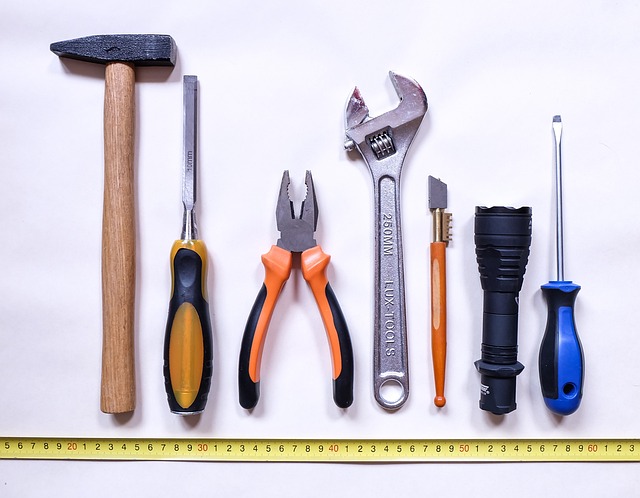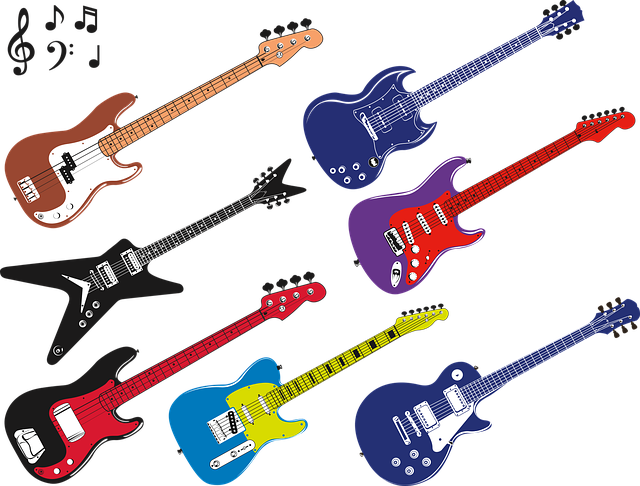AI websites for music production are revolutionizing the industry by offering tools that assist musicians in generating melodies, harmonizing chords, and composing songs using machine learning algorithms and vast musical datasets. Platforms like Amper Music, AIVA, and Melodrive empower creators to compose unique soundtracks and redefine modern music production. When choosing these sites, users should consider features, functionality, collaboration options, and the balance between creative control and algorithmic composition. AI integration has experienced significant growth, transforming artistic creation with tools for composition, sound design, and mixing, leading to increased accessibility, innovation, and excitement in music production across various genres and scales. The future holds immense potential for further advancements in AI-driven music production.
“Unleash Your Inner Composer: Navigating the AI Revolution in Music Production”
Artificial Intelligence (AI) is reshaping the creative landscape of music production, offering unprecedented tools for artists and producers. This comprehensive blog explores the emerging role of AI in crafting melodies, from understanding its capabilities to comparing top AI websites like Amper Music, AIVA, and Melodrive. We delve into the balance between human creativity and algorithmic composition, analyze industry impact, and predict future trends, providing insights for every music enthusiast curious about AI’s potential in music creation.”
- Understanding AI's Role in Music Production
- Popular AI Websites for Music Creation: An Overview
- Features and Functionality Comparison
- Creative Control vs. Algorithmic Composition
- Industry Impact and Adoption Rates
- Future Trends: Where AI Music Tools Are Headed
Understanding AI's Role in Music Production

In today’s digital era, Artificial Intelligence (AI) is revolutionizing various industries, and the music production sector is no exception. AI websites for music production offer a plethora of tools designed to assist composers, producers, and musicians in creating, arranging, and mastering music. These AI-powered solutions can generate melodies, harmonize chords, and even compose entire songs, thereby enhancing creativity and productivity. By leveraging machine learning algorithms, these tools learn from vast datasets of musical styles, genres, and patterns, enabling them to produce unique and high-quality audio content.
Understanding AI’s role in music production is crucial for folks exploring the potential of this technology. AI doesn’t aim to replace human musicians but rather fosters their creativity by automating repetitive tasks, suggesting new ideas, and providing a fresh perspective. This collaboration between humans and AI can lead to groundbreaking musical innovations while saving time and effort for artists, allowing them to focus on refining their craft and expressing their artistic vision.
Popular AI Websites for Music Creation: An Overview

In the realm of modern music production, Artificial Intelligence (AI) tools have emerged as game-changers, offering innovative ways to create and enhance musical compositions. Among the myriad of AI websites for music production, a few stand out for their advanced features and user-friendly interfaces. These platforms are revolutionizing the way musicians and producers craft their art.
Some popular AI websites include Amper Music, AIVA (Artificial Intelligence Virtual Artist), and Melodrive. Amper Music provides an intuitive interface where users can customize their music by genre, mood, and tempo. AIVA, on the other hand, has gained recognition for its ability to compose original soundtracks, offering a vast library of AI-generated music. Melodrive is unique in that it generates ambient music, perfect for video games, films, or meditation, catering to diverse musical needs. These AI websites for music production are accessible tools that empower creators to explore new sonic territories and push the boundaries of what’s possible in modern music.
Features and Functionality Comparison

When comparing AI websites for music production, features and functionality are key aspects that set each tool apart. These platforms offer a range of capabilities designed to streamline and enhance various stages of music creation, from composing melodies to mastering tracks. Some AI music generators excel in natural language processing, allowing users to create custom sounds by describing desired attributes, while others focus on advanced audio synthesis, providing access to vast libraries of pre-composed loops and samples.
Functionality also varies regarding user interaction and control. Some AI tools offer intuitive interfaces with drag-and-drop capabilities, making it easy for beginners to get started quickly. Others cater to more experienced producers, providing granular controls over parameters like oscillators, filters, and effects, enabling precise adjustments for sophisticated sound design. Additionally, collaboration features, such as real-time co-creation and cloud storage, differ between platforms, affecting workflow efficiency and the potential for remote teamwork.
Creative Control vs. Algorithmic Composition

In the realm of AI music tools for music production, one key debate revolves around the balance between creative control and algorithmic composition. On one hand, these tools offer powerful algorithms that can generate melodies, harmonies, and even entire compositions with minimal human input. This aspect is particularly appealing to musicians and producers who seek inspiration or wish to explore new sonic territories quickly. Many AI websites for music production highlight this feature, enabling users to let algorithms do the heavy lifting while they focus on other aspects of the creative process.
However, some producers argue that relinquishing complete control over their art undermines the very essence of musical creation. They emphasize the importance of human intuition, emotional depth, and nuanced adjustments that only a human touch can bring. In this perspective, AI tools are best seen as collaborative partners rather than replacement composers. The ongoing dialogue between artist and algorithm can lead to unique and innovative outcomes, but it requires the user to maintain an active role in the creative control.
Industry Impact and Adoption Rates

The adoption of AI in music production has been steadily gaining traction, revolutionizing how artists and professionals create and enhance their work. AI websites for music production offer a range of tools that can assist with composition, sound design, and mixing, among other tasks. These technologies are particularly appealing due to their ability to streamline workflows, reduce costs, and open up creative possibilities previously unimaginable.
As the industry continues to evolve, more musicians and producers are turning to AI solutions for their versatility and efficiency. The impact of these tools can be seen across various genres and scales, from independent artists using AI for basic music generation to major studios employing advanced AI algorithms for complex sound manipulation. The adoption rates reflect a growing acceptance and understanding of AI’s potential to transform music production into a more accessible, innovative, and exciting process.
Future Trends: Where AI Music Tools Are Headed

The future of music production is looking increasingly vibrant with AI tools revolutionizing the industry. As technology advances, we can expect these AI websites for music production to become even more sophisticated and integrated into the creative process. Imagine a world where composers and producers collaborate with intelligent algorithms to craft unique sounds and compositions.
AI-driven music generation is set to offer personalized experiences, adapting to individual styles and preferences. This evolution will enable musicians to explore new creative avenues, streamline their workflows, and push the boundaries of musical expression. The potential for AI in music production is vast, promising exciting developments that will shape the industry’s trajectory.
In conclusion, AI tools are transforming the music production landscape, offering both creative opportunities and challenges. As we’ve explored through this blog’s comprehensive sections, various AI websites for music production provide unique features, with some focusing on creative control while others excel in algorithmic composition. The music industry is rapidly adopting these tools, indicating a significant impact on future musical creations. By understanding the role of AI and staying informed about emerging trends, producers can harness the potential of AI music tools to create innovative and captivating sounds.
